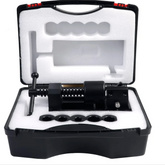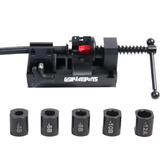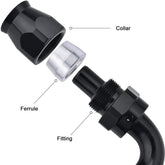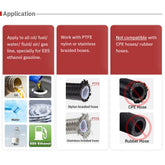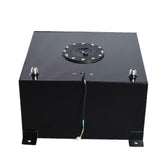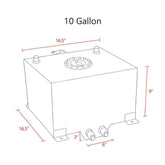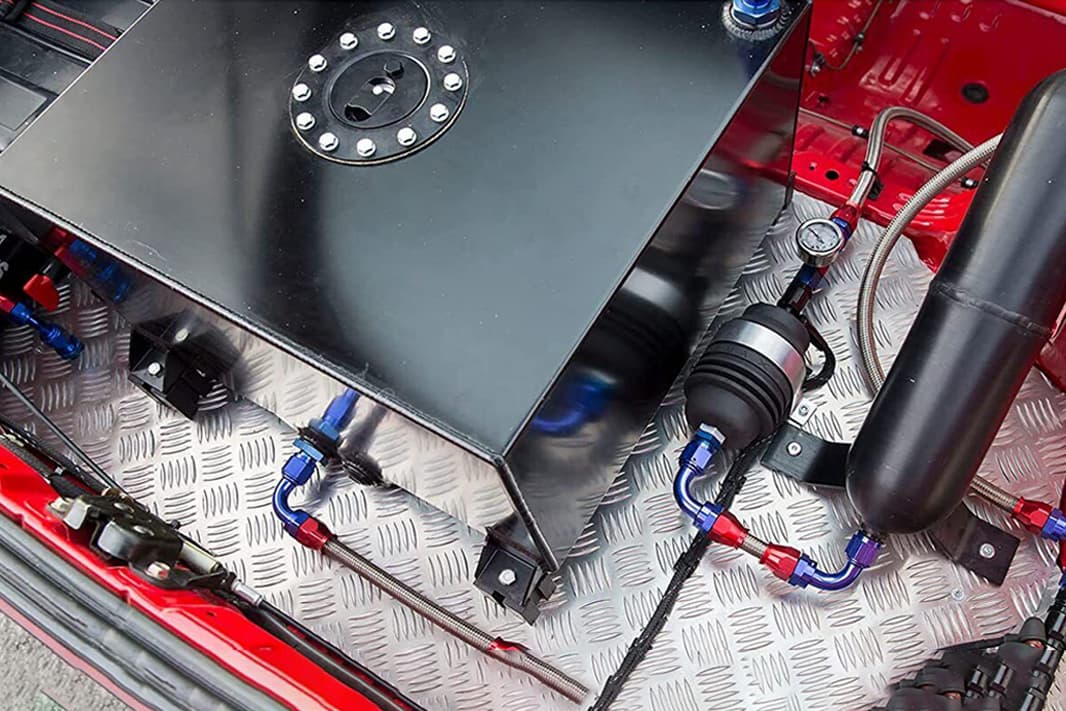Racing fuel tank play a pivotal role in motorsports, meticulously designed to securely store and dispense fuel under the demanding conditions of racing. In contrast to traditional fuel tanks, racing fuel cells feature advanced materials and safety protocols to reduce fire risks and guarantee efficient fuel dispersion.
Whether involved in professional racing circuits or amateur racing endeavors, understanding the variety of racing fuel reservoirs and their unique applications is crucial for enhancing both performance and safety measures.
What are the main features of racing fuel cell tanks?
Racing fuel cell tanks incorporate several key features that distinguish them from regular automotive fuel tanks:
- Safety Bladders: These pliable linings thwart fuel leakage in the event of collisions.
- Anti-Slosh Foam: This foam diminishes fuel agitation within the reservoir, guaranteeing consistent fuel dispersal.
- Robust Casings: Typically forged from robust materials like aluminum or composites, these casings shield the fuel cell from external impacts.
What types of racing fuel tanks are there?
-
Universal Racing Fuel Tanks
Universal racing fuel reservoirs are crafted to accommodate a diverse array of vehicles, providing flexibility and straightforward installation. They serve as an optimal option for racers engaged in various motorsport disciplines or those seeking a dependable, economical solution. The advantages of universal racing fuel reservoirs encompass:
- Adaptability: Suited for various vehicles and racing configurations.
- Cost-Efficiency: Generally more economical than specialized reservoirs.
- Ease of Setup: Flexible design streamlines the installation process.
-
Specialized Fuel Tanks
Specialized fuel tanks are custom-built for specific vehicles or racing applications. These tanks provide the best fit and performance, making them the preferred choice for high-level motorsports. Benefits of specialty fuel tanks include:
- Optimal Fit: Engineered for precise vehicle models.
- Enhanced Performance: Customized to meet the distinctive demands of specific racing formats.
- High Safety Standards: Fabricated to meet rigorous safety standards.
-
Liquid Level Sensors
Liquid Level Sensors play a pivotal role in racing fuel reservoirs, furnishing instantaneous insights on fuel levels. This data is indispensable for drivers and pit crews to efficiently regulate fuel consumption and avert fuel depletion during races. Advantages of level sensors include:
- Precision Monitoring: Facilitates the upkeep of optimal fuel levels.
- Enhanced Strategic Planning: Enables superior pit stop scheduling and fuel administration.
- Safety Assurance: Guards against fuel deprivation, which could harm the engine.
Cutting-edge liquid level sensors leverage advanced technologies like ultrasonic or capacitive measurement to provide accurate readings even amidst the demanding circumstances of a race.
How to choose a suitable Racing fuel cell tank?
The capacity of your racing fuel cell stands as a pivotal determinant impacting your vehicle's performance and race tactics. Here's a breakdown of the diverse fuel cell capacities and their optimal applications:
- 10 Gallon Fuel Cells Tanks
10 gallon fuel cell tanks are tailored for brief, high-intensity races where weight reduction and agility reign supreme. 10 Gallon Fuel Cells Tanks have the following advantages:
- Featherweight: Trims vehicle mass, augmenting acceleration and maneuverability.
- Compact Dimensions: Effortlessly fits into smaller vehicles.
- Frequent Refueling: Ideal for races necessitating regular pit stops.
- 15 Gallon Fuel Cells Tanks
15 gallon fuel cell tanks proffer a balanced capacity, rendering them versatile for an array of racing formats. 15 Gallon Fuel Cells Tanks have the following advantages:
- Balanced Capacity: Suited for medium-distance races.
- Versatility: Compatible with a diverse range of vehicles and racing genres.
- Moderate Weight: Strikes a fine balance between fuel capacity and weight.
- 20 Gallon Fuel Cells Tanks
20 gallon fuel cell tanks are tailored for protracted or endurance racing events where extended fuel capacity is imperative. 20 Gallon Fuel Cells Tanks have the following advantages:
- Maximum Capacity: Curtails the necessity for frequent refueling.
- Endurance: Ideal for prolonged races and off-road competitions.
- Steady Fuel Provision: Ensures consistent performance across extended durations.
Conclusion
Ultimately, choosing the right racing fuel tank is key to your car's performance and race strategy. As a racer, you need to consider factors such as race distance, vehicle type, and race frequency. By accurately selecting the tank capacity, you can find the best balance between reducing weight, improving flexibility, and ensuring lasting power, which can give you an advantage in the competition. Remember, the best choice is not just about the size of the capacity, but also how it meets your specific racing needs and tactical goals. I hope this article can help you make the most informed decision to help you achieve great results on the track.

